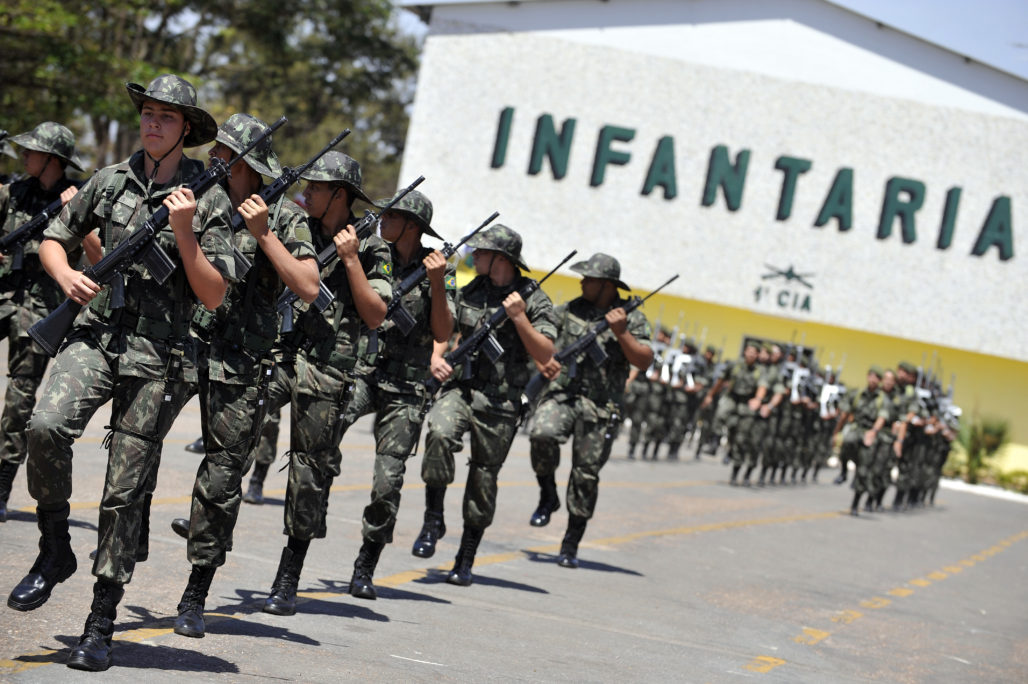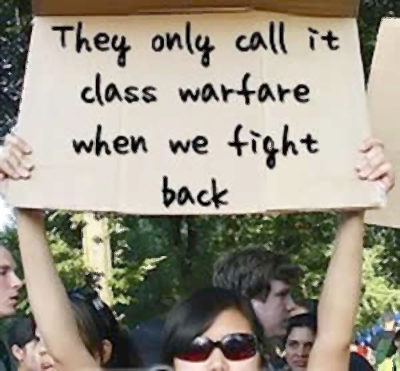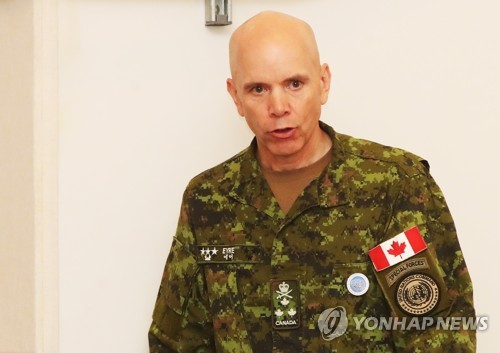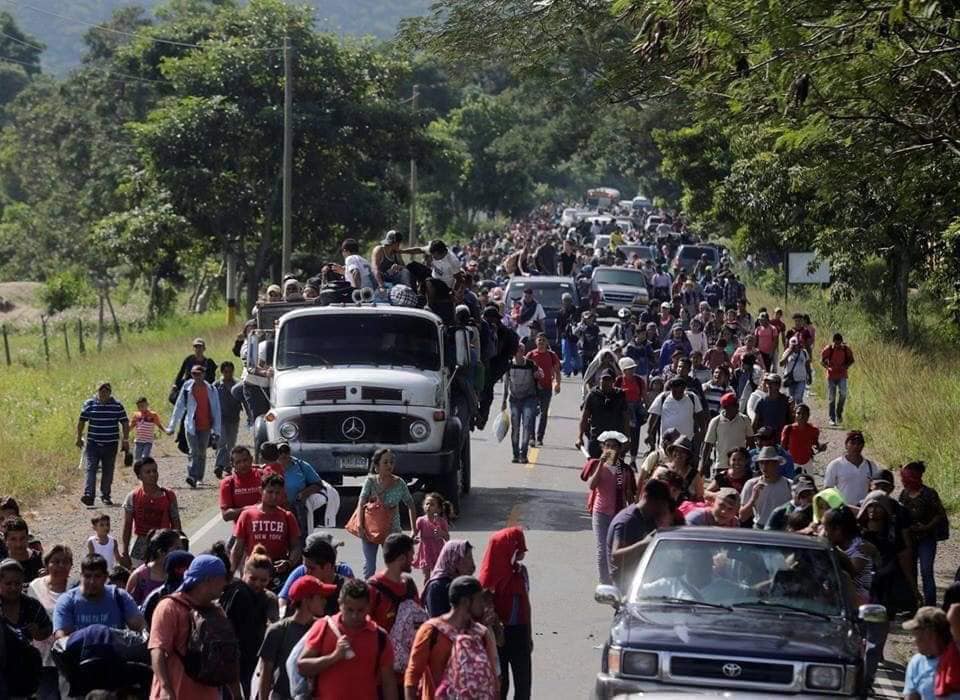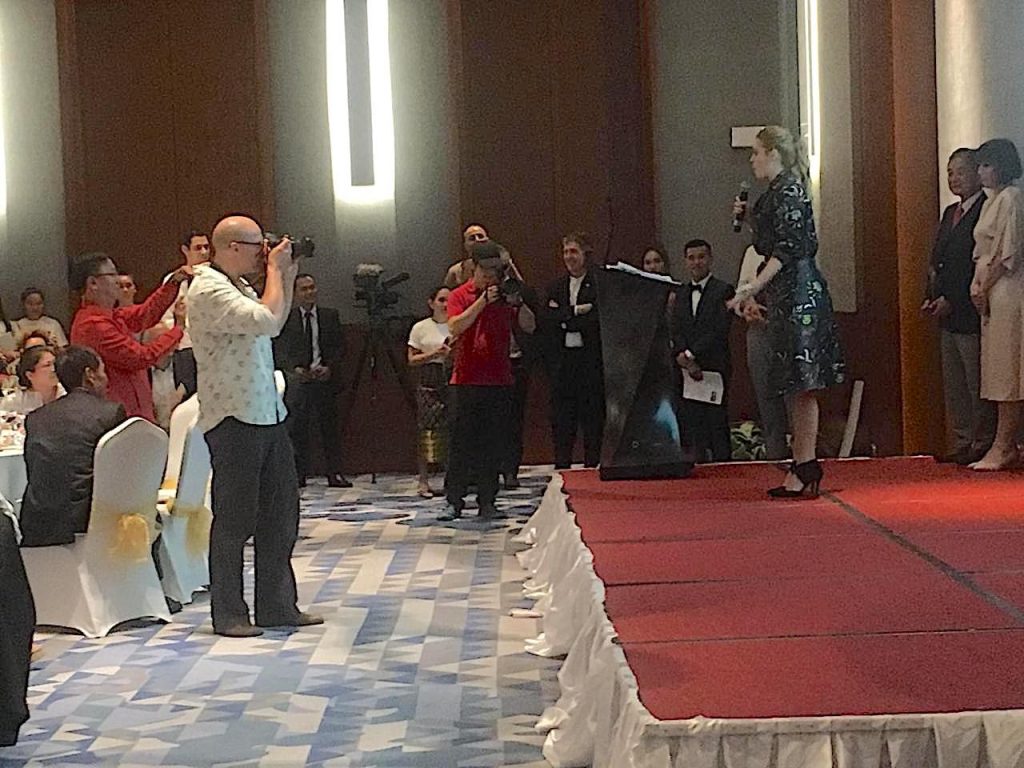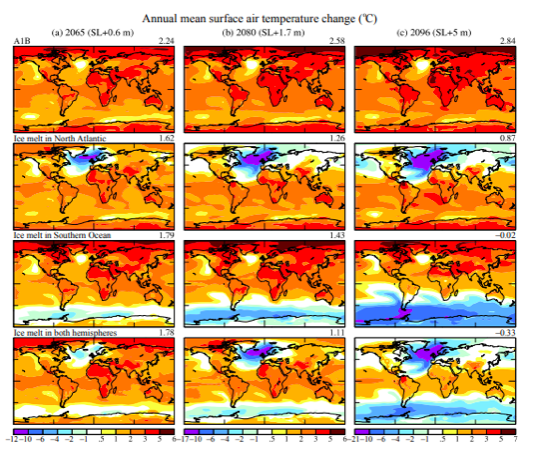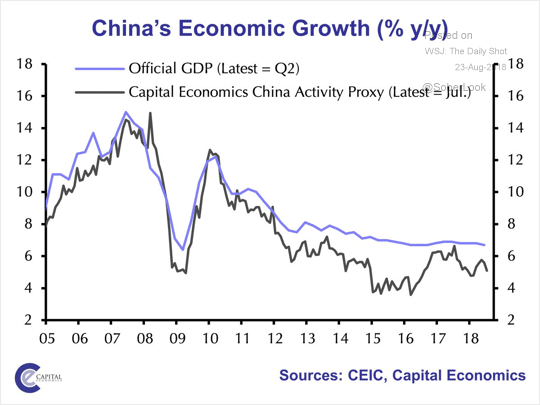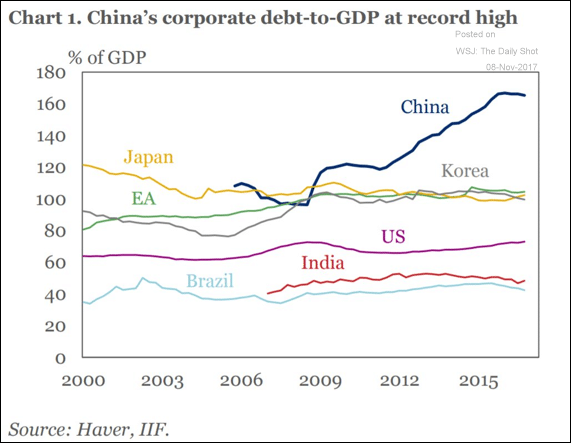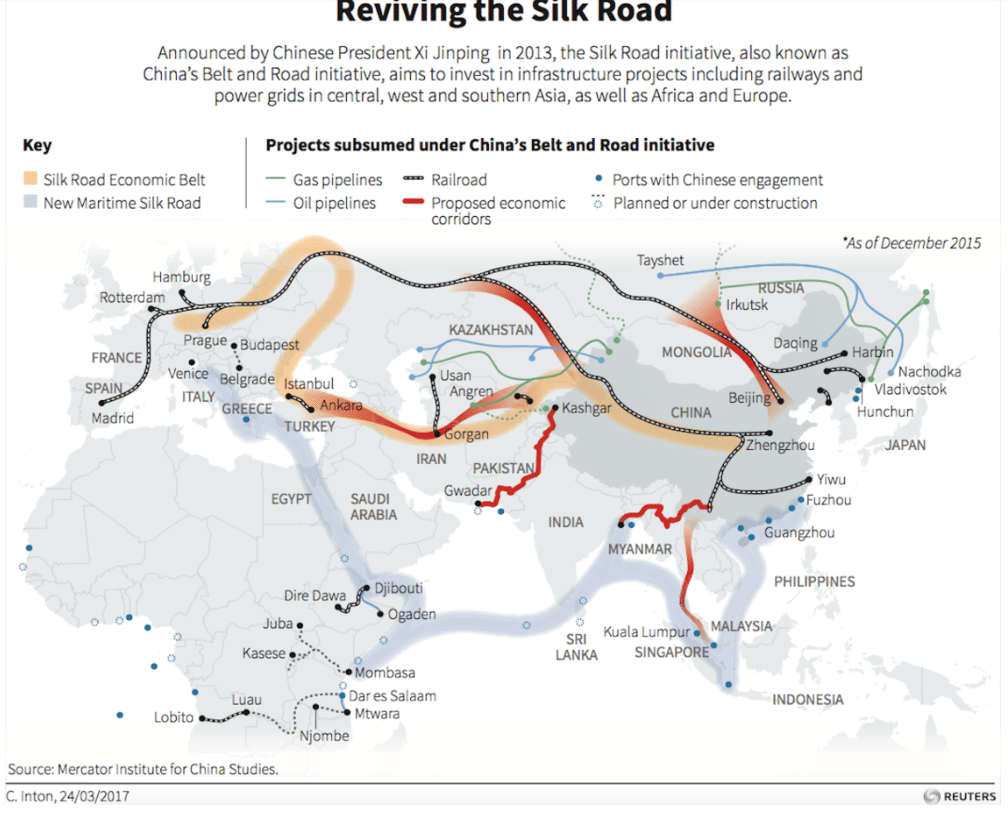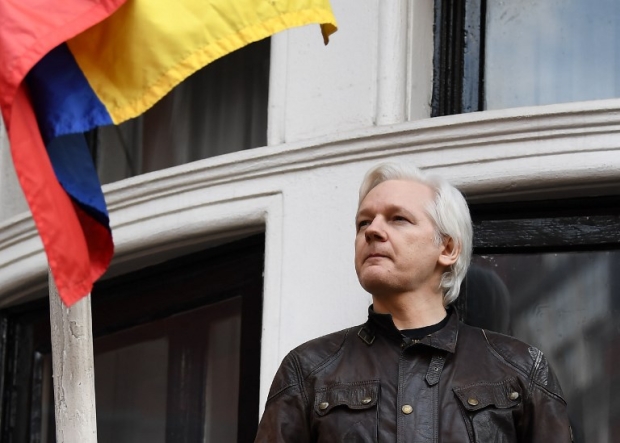The projection of white people as having a collective set of interests at both national and global levels is a phenomenon which has taken greater shape in recent times. Fuelled by trends related to changes in demographics, increases in both legal and illegal immigration, as well as the entrenchment of the ideology of multiculturalism, the idea of white identity was sometimes explicitly, and other times subliminally at the forefront of the last United States presidential election and the British referendum on membership of the European Union.
It has manifested itself in regard to the rise of nationalist political parties, pressure groups and media outlets in North America and Europe. The ‘alt-right’ is now a recognisable appellation alongside that of ‘white nationalism’ in everyday social and political discourse. The several decades long drift towards identity politics has arguably made the development of the politics associated with white identity as something of an inevitability.
But the concept of white identity is not a straightforward one. Historically, it had a more constricted definition, one which on many levels is still relevant today. For instance, Brexit has been viewed by some as having not being solely a reaction against non-white immigration, but as having strong anti-Slav undertones. And many Russian commentators perceive anti-Russian sentiment in the on-going new ‘Cold War’ with the West as having a strongly racial subtext. There is also a persistent divergence among white nationalists about whether Jews fit into the coalition of this form of racial identity. But further than these matters lies the problem of whether a political movement based on the value of skin colour can ever form the basis of an objective worldview capable of solving the problems perceived to be the most pressing by its adherents.
Identity Politics: A Brief Background
The politics of identity has a lengthy history and a multiplicity of definitions. However, it is arguably best understood contemporarily as the means by which the members of society are splintered into groups and sub-groups denoting a shared interest based, for instance, on their gender, ethnicity, religion or sexuality. It has tended to focus on those minorities in society who have had a history of being disadvantaged and discriminated against.
Thus, in North American and Western European countries, organisations concerned with the advancement of the interests of the aforementioned groups were created and have evolved under numerous guises. Administrative procedures have been formulated and legislative rules have been passed, and pressure applied in the socio-political and economic spheres to influence the transformation of the norms and practices in society so as to adapt to the needs of each category. Thus, in the United States so-called ‘hate laws’ were passed, which had the primary objective of affording protections to ethnic minorities and non-heterosexuals, while ‘Affirmative Action’ legislation was geared towards females and minorities.
But one reaction, or, just as accurately, an evolution of this trend has been the developing consciousness among growing segments of majority-white populations of specific needs of whites as a group, and their sub-groupings. This has been facilitated, for instance, by the marked changes which have occured in the demographics of certain towns and cities due to immigration. Questions have been raised about whether the white working classes have been neglected after decades of policies geared towards meeting the needs of minority groups that have been designated as disadvantaged.
And within this sub-grouping, specific issues related, for instance, to the educational attainment of white working class boys and access to social housing for white working class families are frequently referred to. Moreover, the proactive implementation of policies geared towards promoting multiculturalism, as well as the ‘enforcement’ of political correctitude have been critiqued as oppressive tools which have been utilised in the denigration of the cultures of majority-white nations and the inhibiting of free speech.
Using the United States as an example, the lexicography of racial polarisation and white alienation, that is the fruit of identity politics, has been expressed through terms such as ‘white privilege’, ‘cultural appropriation’ and the like. ‘White privilege’ is a term disavowed by those who note that the majority of the poor in America are white, albeit that minority groups may have proportionally more poor. It is a term also which a large segment of whites from ordinary backgrounds do not feel to be accurate given their concerns that minorities are actively favoured and fulfil the description of ‘privilege’ because of the laws and policies associated with ‘positive discrimination.’
“Latecomers and intrusive elements”: Nordicism in the United States
It is useful at this juncture to ask who precisely is considered ‘white’? An examination of the history of racial classification in America reveals a more constricted definition of who a ‘white’ person is. This less expansive definition is also relevant in contemporary times, and serves as an argument against the wider drift towards identity politics becoming the overriding determining factor in framing political and social discourse, and its ramifications on social policy and legislation.
Those on on the political right, the white nationalists and members of the so-called alt-right, are apt to claim that America was created by white people for white people. The irony, is that a significant portion of those contemporarily designated as white today were not considered white and did not consider themselves as white until relatively recent times.
The prevailing racial ideology was ‘Nordicism’, an intra-European form of racism that lasted well into the 20th century. At the top of a three-tiered racial hierarchy were those of Anglo-Saxon, Scandinavian and German descent. The Alpine race, described as ‘intermediate white’, were above the generally darker-hued Mediterraneans. If the basis of a distinct Alpine race was somewhat tenuous, the reality of Anglo-Saxon supremacy in the conduct of social, economic and political affairs was real enough. The hostility and condescension towards other European races was manifested in the writings of Madison Grant, who felt that only the Teutonic race should be allowed into America. Indeed Grant, author of The Passing of the Great Race, Or, the Racial Basis of European History, considered European Alpine and Mediterranean strains as “intrusive elements”.
So the story of many groups considered as ethnic whites has been an arduous one of striving for acceptance by the Anglo-Saxon Protestant elite. Apart from discrimination based on their Catholicism, the Irish were often depicted as apes, southern Italians were believed to be ‘out of Africa’, and the Jew was considered a species of ‘Negro’. Up until the 1960s, American communities of Slavs and Balts, such as those of Polish and Lithuanian stock, did not refer to themselves as ‘white’ people. Others such as Arabs and Armenians were forced to resort to intermittent legal action in order to be classified as ‘white’.
All of these groups had a history of being discriminated against and faced exclusion from areas such as employment, land ownership and access to the elite institutions of education. They all endured specific forms of prejudice and stereotyping.
Apart from being dehumanised through frequent caricatures portraying them as simian-like, the Irish were considered to be an unruly and primitive race of people whose men were prone to drunkenness and women incessant childbearers. They were alternately perceived as agents of trouble who threatened to plunge the United States into chaos, and as a people whose high birth rate threatened to outbreed Protestants and turn the nation into a Catholic one. It was also felt that they had a tendency to clannishness and maintained an unfettered obeisance to the papacy which stood in marked contrast to the perceived Protestant predisposition to individualism and acceptance of democratic norms. The Philadelphia Prayer Riots of 1844 were symptomatic of the nativist reaction against a growing Irish Catholic population.
Southern Italian immigrants were often perceived as dirty, lazy and inclined to criminality. This was not unlike the way in which many of their northern compatriots viewed them: the Mezzogiorno, they felt, represented backwardness (Italia Bassa) in contrast to the ‘enlightened’ north: Alta Italia. In the United States, the theories of Cesare Lombroso were used to ascribe to the stereotypical physical features of southern Italians, qualities that were comparable “to lower primates”. This, it was claimed, made them more susceptible to committing violent crimes than other Europeans, especially Nordics. The Dillingham Report of 1911, which was prepared for the American Immigration Commission, concluded: “Certain kinds of criminality are inherent in the Italian race. In the popular mind, crimes of personal violence, robbery, blackmail and extortion are peculiar of the people of Italy.”
And while historians such as Oscar Handlin considered America’s perception of 19th century Jewish immigrants to be exceptionally tolerant and devoid of the demonic depictions common among European cultures, scholars who came after him, although accepting that Jews were economically mobile and did not have to contend with episodic pogroms, have concluded that they frequently encountered animosities and endured miscellaneous forms of demonisation.
Certainly, by the 20th century, Jewish immigrants from eastern Europe along with immigrants of southern Italian heritage began to be associated with radical movements such as communism and anarchism. Henry Ford’s serialisation of The Protocols of the Elders of Zion in the mass circulation Dearborn Independent, the ‘Palmer Raids’, as well as the trial and the executions of the Italian-born anarchists, Nicola Sacco and Bartolomeo Vanzetti indicated the temper of the times.
Just as earlier migrations of Irish Roman Catholics was felt to threaten America’s Protestant identity, the growing populations of these newer wave of European immigrants was considered to be a long-term threat to the American way of life. The result was the passage of the Immigration Act of 1924. It was a law which set strict quotas in order, according to Senator David Reed, one of the architects of the legislation, to “maintain the racial preponderance of the basic strain on our people and thereby to stabilize the ethnic composition of the population.” This Act as well as Acts passed in 1921 and 1952, were designed to establish a distinct ‘American identity’.
Times have of course changed. The Immigration Act of 1965 departed from the hardline rules on immigration, and the non-Teutonic groups of ethnic whites have become largely assimilated. But the lines of demarcation of whiteness have by no means been settled.
“Between Civilisation and Barbarism”: The Slavs
The origin of the English and French word ‘slave’ is widely believed to have been derived from ‘Slav’, after Emperor Charlemagne brought thousands of captives from the wars he waged on his eastern border. But Western racist tendencies towards Slavs are not derived from a legacy of colonisation and exploitation of the sort practised on black Africans and Asians.

Colonisation of eastern Europe by the West was limited, although it is worth mentioning that the methods by which the military-chivalric orders of the Teutonic Knights conquered and colonised the indigenous Balts and Western Slavs in order to create the Ordenstaat, was of a manner not dissimilar to those used to colonise the American West. Historically, anti-eastern European attitudes were informed by a mixture of anti-Orthodox Christian prejudice and the belief that Slavs, such as the Russians, were composed of a different racial bloodline that included ‘barbaric’ Asiatics. There was a widespread belief that much of eastern Europe was ‘polluted’ by Jewish and Roma communities, and that their civilisations were no match for post-Medieval Western nations whose Renaissance, Enlightenment and capacities for global empire-building put them rungs above the east.
The fault lines which arguably still exist between the white people of western and eastern Europe can be examined through the political and economic relations in the European Union (EU), as well as in the foreign policy conducted by the Western world. For instance, some have characterised the European economic project as being one through which the northern European nations have dominated their southern counterparts, beginning with the creation of the European Community (EC), and that this domination and exploitation has continued and has being extended to the Slavic countries granted membership after the eastward expansion of the EU.
This expansion can be characterised as a move designed to find replacements for Mediterranean countries such as Greece, Italy and Spain who have become indebted to their northern neighbours. The application of the privatisation measures typified by asset stripping as applied to the new member states were redolent of the methods long-practised on non-white developing nations by the Western-dominated international financial institutions.
Inequalities are revealed by the fact that countries such as Latvia are highly reliant on EU funding. In 2015, the head of the Latvian Chamber of Commerce and Industry admitted that the country was “too dependent” on EU funds. Inequality has been reflected by the migration to western Europe by millions of central and eastern Europeans where many are engaged in performing menial jobs.
The combination of low income jobs, high rates of unemployment and underemployment, that is the lot of many of those who end up in countries such as Britain, is not only down to human capital levels, but is suggestive of a form of structural discrimination; an “ethnic penalty” of sorts, according to Jon Fox, a professor of sociology at Bristol University.
Nonetheless, the numbers of eastern European migrants has caused a great deal of resentment because they have been accused of undercutting the labour market. A study by MigrationWatch UK, a right-wing think-tank which monitors the social and economic effects of immigration claimed that a combination of the benefits system and immigrant labour willing to work for lower wages had created “an underclass of discouraged British workers”.
Thus it was that an undercurrent of the debate over Britain’s exiting from the EU was about the negative effects of free movement of labour in Europe caused by migrant Poles, Romanians, Slovakians and others. Back in 2013, Nigel Farage, the leader of the United Kingdom Independence Party (UKIP), had claimed that the British government had underestimated the amount of Romanian and Bulgarian immigrants who would want to come to a “civilised country” like the UK. Charging that many of the Roma were “living like animals”, he added that what he claimed was an underreported “Romanian crime wave epidemic” in London would only “get worse”.
The discourse related to Brexit provided ample opportunities for those advocating populist anti-immigrant views to vent their spleen at eastern Europeans. And after the June 2016 referendum vote in favour of leaving, the Polish ambassador in London felt compelled to express his “shock” and “concern” at the levels of xenophobic abuse directed at members of the Polish community.
Anti-eastern European sentiment has been manifested in many ways. Racially-motivated attacks ranging from verbal assaults to homicides have been recorded, and numerous instances of prejudice and discrimination reported in the media. A survey, this year, of a thousand eastern Europeans aged between 12 and 18 carried out by the universities of Strathclyde, Plymouth and Durham found that most respondents had seen an increase in incidents of xenophobia, and that the decision of Britain to leave the EU had created a sense of “rejection”.
The British state has also been claimed to act in ways that have reflected these sentiments. In November 2015, the British Home Office quietly began a policy of rounding up and deporting eastern Europeans found to be sleeping rough on the streets, until it was stopped in December 2017 as a result of a legal challenge.
Anti-Slav sentiments are of course not a new thing. Benito Mussolini, the Italian fascist leader, thought Slavs to be an inferior and barbaric race. And its expression did not end with the fall of Adolf Hitler’s regime during which time National Socialist doctrine held the Slavic races to be among those designated as untermensch, or sub-human beings. It has been argued that contemporary Western policies vis-a-vis the rest of the world includes an implicit attitude that Slavs, like non-whites are inferiors to be demonised, manipulated and exploited.
It is revealed at many levels of the aforementioned European economic project as it is in regard to the dispensing of international justice. After all, the International Criminal Court and special judicial bodies formed over the last few decades to deal with human rights violations have been largely focused on bringing Slav and African figures to trial, while those leaders from the Anglo-American world who have been responsible for a series of calamitous adventures in the Middle East and North Africa that have caused millions of casualties, appear immune from prosecution.
It is a set of attitudes which some argue affects Western foreign policy under the stewardship of the United States to this very day. In a piece entitled “Slavs and the Yellow Peril are ‘niggers, brutes and beasts’, in the eyes of the Western Empire”, Jeff J. Brown wrote the following:
Westerners cannot write about their racial superiority and the perceived subhumaness of non-Westerners, like they were able to do so freely until the 1950s. But it is still manifestly the fundamental principle that drives America’s “exceptionalism” and the West’s “shining beacon on a hill” superiority, thus legitimizing ongoing Western genocide, wars, government overthrows and economic and resource exploitation, through the “benign, invisible hand” of capitalism, across Planet Earth.
This line of thinking was reflected in the writings and sayings of the late Zbigniew Brzeziński, a hugely influential US foreign policy theoretician, who wrote the following in his 1997 book The Grand Chessboard: American Primacy and its Geostrategic Imperatives:
…To put it in a terminology that harkens back to the more brutal age of ancient empires, the three grand imperatives of imperial geostrategy are to prevent collusion and maintain security dependence among the vassals, to keep tributaries pliant and protected, and to keep the barbarians from coming together.
The implications in regard to the contemporary geopolitical situation are clearly observed in the conflicts fomented by the West through policies geared towards setting Muslim Sunnis and Shias (or secularists and Islamists) against each other in the Middle East just as they are apparent in the conflict between Slavs in the Ukraine.
The new ‘Cold War’, which evolved after the emergence of Vladimir Putin who ended the mass plunder of Russian resources overseen by Western economic experts and security organisations during the 1990s, has featured a specific species of anti-Slavic sentiment often referred to as Russophobia. It is partly rooted in the legacy of Russia as a colonial and ideological competitor to the West, as well as in the belief that Russians are different racially and culturally.
The sins attributed to Putin-run Russia -many of them highly contentious- by the Western mainstream media seemingly hark back to what John Maynard Keynes referred to as a “beastliness in the Russian nature” as well as a tendency to “cruelty and stupidity”. This has been reflected by the public utterances of Western politicians, public servants and policymakers. For instance, James Clapper, the United States Director of National Intelligence claimed on NBC national television that Russians “typically, are almost genetically driven to co-opt, penetrate, gain favour”. John Brennan, a former director of the Central Intelligence Agency (CIA), warned that Russians “try to suborn individuals and they try to get individuals, including US citizens, to act on their behalf either wittingly or unwittingly … Individuals going on a treasonous path often do not realise it until it is too late”.
Russia is a “gangster’s paradise” according to a columnist for the British Guardian, who opined that under Vladimir Putin, gangsterism on the streets had given way to kleptocracy in the state. The image of a rapacious bear is frequently served up by Western cartoonists striving to reflect the notion of Russian barbarity, although a spokesperson for the State Department offered a variation when describing Russia as “a beast from the deep sea with tentacles.”
Russians are also characterised as a monolithic people willingly held in the thrall of an oriental-type tyrant. So, Russian public opinion, has been characterised as “mob’s opinion”. And the accepted view of Russia as an abnormal country with a predisposition to deviancy in the realm of international relations was reflected by Anne Applebaum, a ‘Russia expert’, as “an anti-Western power with a different, darker vision of global politics…(a) norm-violating power.”
The distinction between Russia and the West has often been seen as one based on distinct civilizational models and race. Some have argued that the positive advances in Russia were historically the result of non-Slavic influences. Kievan Rus, which is viewed by Russians as the foundation of what grew into the modern Russian state, is believed by some historians to have been the product of Vagarian (Viking) migrants, and that the people of Rus, the word from which Russia is derived, were Scandinavian and not Slav. An attempt at reconciling both competing theories posits that the Rus formed an elite among a majority Slavic people. Needless to say, Adolf Hitler’s racial view supported the idea that the achievements made during the development of modern Russia were due to Germanic elements rather than Slavic.
The attitude of white nationalists in the West to Russia is varied. Whereas some consider Russians to be a kindred European people, others consider Russians to be both racially and culturally distinct from the West. Richard Spencer, a key voice in the alt-right movement, whose marriage to a woman with distinctly Eurasian features earned the scorn of racial hardliners, has praised present-day Russia for being “effectively” an “ethno-state.”
Russia, along with other eastern European states, is seen as resistant to the ethos of the multiculturalism preached and practised in the West. The eastern European states are also perceived by many in the West to be ethnocentric and ‘racialist’ in mentality; a state of affairs viewed negatively by the Western liberal mainstream and positively by the white nationalists of the West. Racism was of course incompatible with the values propagated by the communist governments under which eastern Europeans lived for many decades during the 20th century, and many of the ruling parties took the unrealistic position that racism did not exist in their countries without ever making it a subject of public debate and examination.
The collapse of communism some political scientists have posited, arguably created a vacuum in which post-socialist populations found the old traditions of nationalism and ethnic solidarity more valid than the newer and weaker institutions of liberalism and democracy. These states were largely ethnically and religiously homogeneous in contrast to the substantial racial minorities found in the old colonial powers of Britain and France, as well as West Germany, which had its Gastarbeiter programme.
The issues of ‘European-ness’ (framing post-socialist societies as having always been part of the Western European civilisational sphere, apart from the interludes of fascism and communism), and ‘white identity’ (a ferocious resistance to immigration and multiculturalism) is reflected in the ideology and policies of right-wing nationalist political parties in many of these countries including those belonging to the Visegrad Group: Poland, the Czech Republic, Hungary and Slovakia. The resistance to accepting refugee quotas demanded by Brussels, as well as the brutal treatment meted out to refugees, led to the accusation that eastern Europeans had a “compassion deficit” and was evidence of a fundamental “political and cultural gap” that divided the continent.
Many in the white nationalist movements of the West have sought to bolster ties with like-minded organisations in eastern Europe, and consider their societies, without significant non-white populations, to be part of the fraternity of white nations. For Richard Spencer, Russia is the “sole white power in the world”, and David Duke believes that Russia holds the “key to white survival”. For British far right leader Nick Griffin, the “traditionalists and nationalists” of the West can only look on “with awe, or even a degree of envy” at the patriotism put on display by large numbers of young Poles who participate in an annual independence day march, as well as the race and culture preserving motivation behind the Hungarian decision to build a “migrant-proof wall on their borders”. And while the decision in 2012 by Geert Wilders’ Dutch Freedom Party to create a website through which Dutch nationals could anonymously lodge complaints about eastern Europeans provoked formal protests from ten eastern European countries, Wilders has expressed words of solidarity with eastern European countries resisting the dictates of what he describes as the “cosmopolitan elites” who wish their countries to be “Islamised in the same way as Western Europe”.
Nonetheless, as previously mentioned, anti-Slavic sentiment in the West remains a tangible force on many levels. As Larry Wolff explained in 1994, eastern Europe was “the developmental scale used to measure the distance between civilisation and barbarism.” The Soviet Bloc nations of eastern Europe along with Russia, after all, were at one point often referred to as the ‘Second’ World’. It is perhaps while being conscious of the superiority complex of Western Europeans that Viktor Orban once called on the former British Prime Minister David Cameron not to treat Hungarians living in Britain as “migrants” or “parasites”. This revealing incident, construed as a plea for the British not to treat Hungarians as they would non-whites, is perhaps one reason why some have derisively referred to white identitarianism (and white nationalism) as basically a form of ‘multiculturalism for white people.’
“A People That Shall Dwell Alone”: The Jews
One of the key characteristics of nationalist movements evolved in Europe and North America has been to traditionally consider Jewish communities as being racially distinct from and inherently hostile to white European societies. Jews therefore incurred the wrath of a succession of nationalist movements on the European continent which culminated in the state-sponsored persecutions and homicidal policies of Nazi Germany. In the post-War period, neo-Nazi and neo-Fascist groups in Europe continued to define themselves through anti-Jewish sentiment even when their venom was focused on newly-arrived non-white immigrant communities from what had been colonies.

The ‘Jewish Question’ continues to fixate many white identitarians in the era of the alt-right, but unlike the past there is a big divide among contemporary adherents of ‘race-realism’ and white nationalism about Jews. While for some, there is a continuum in considering Jews to be an alien and malevolent race of people, others consider Jews to be a key part of Western European culture and Zionist Israel to be an ideologically kindred entity to be bolstered and protected by the West. It is a divide perhaps best explained through the writings and utterances of two prominent white nationalist ideologists, Kevin MacDonald and Jared Taylor.
MacDonald, a professor emeritus of a Californian university and editor of the Occidental Quarterly, continues the tradition of viewing Jews as a parasitical people, whose elites and representative groups consistently undermine white Christian societies culturally, spiritually and economically. A key theory of his, a derivation of evolutionary psychology that he terms ‘group evolutionary strategy’ is detailed in his book A People That Shall Dwell Alone. MacDonald argues that Jews have consistently risen to the elite of the societies within which they reside because of their high-level ethnocentrism, cohesion and aggressive pursuit of group interests. The result is, he concludes, that they are able to out-compete non-Jews for resources. He argues that they seek to dominate the economic, academic and cultural institutions of white societies, which have been undermined by a succession of Jewish-inspired and Jewish-led radical social movements, and by their support for open borders policies which threaten white culture and its gene pool.
On the other hand, Taylor, the founder and editor of American Renaissance, as well as the president of New Century Foundation, under which auspices he publishes books, takes the view that Jews are an asset to white societies and have played a key role in the construction of Western civilization.
The divide is clearly illustrated when the discourse turns towards the engineering of the Immigration Act of 1965, which both camps agree provided the basis for the high levels of non-white immigration that they perceive imperils America’s foundation as a ‘white’ nation. Whereas the likes of MacDonald and David Duke assert the pivotal role of Jewish figures such as Congressman Samuel Dickstein and Senator Jacob Javits in ‘opening the gates’ to white ‘racial genocide’, the philo-Semitic right often refers to the ‘culpability’ of liberal figures such as the late Senator Ted Kennedy.
The attitude towards Jews presents what effectively is an unbridgeable chasm in the white nationalist movement. In contrast to nationalist movements of yesteryear, the contemporary situation is replete with individuals, political organisations, pressure groups and media outlets that embrace Jews and the Zionist cause.
Consider, for instance, the words of Richard Spencer, a luminary of the alt-right, when commenting on Israel’s recent nation-state law:
I have great admiration for Israel’s nation-state law. Jews are, once again, at the vanguard, rethinking politics and sovereignty for the future, showing a path forward for Europeans.
His sentiment was echoed by European nationalist advocates such as the Dutch politician Geert Wilders. But they are words of praise decried by the likes of David Duke who consider the Jewish state to be a colonialist and supremacist entity, the qualities of which he insists his brand of white nationalism abhors.
The Jewish and Israel-friendly new-style white nationalism is a phenomenon which palpably irks those on the traditionalist wing of white identity politics for whom accommodation with ‘Jewish power’ is something approaching an abomination. The relations between Israel-lobby groups and the far right, as well as the high-profile role of persons of Jewish origin in white nationalism and the alt-right is to them an issue of grave concern as it speaks of ‘infiltration’ that is ultimately geared towards the subversion their cause.
They are unimpressed by the stances taken by Jewish individuals who pronounce themselves to be ‘conservatives’, ‘libertarians’, ‘paleo-libertarians’ or other labels, and who seek to promote race-realism and advocate anti-immigration policies since they believe that these individuals ultimately serve Jewish rather than ‘white’ interests.
So while the Briton Melanie Phillips, a self-proclaimed “liberal mugged by reality”, presents herself as a ‘red-pilled’ former leftist who takes a hardline stance on immigration, her focus on Muslims and her long-term defence of the invasion of Iraq in 2003 expose her, in the eyes of traditionalist isolationist white nationalists, as a neoconservative favourable to a Western-led interventionist agenda in the Middle East, which they argue has served the objectives of the state of Israel.
It is a similar view held in regard to figures such as Pamela Geller, Debbie Schlussel, and Laura Loomer who are perceived merely as conduits through which anti-Muslim sentiment can be stoked. And although appreciative of their denunciations of multiculturalism and mass immigration, it is an attitude which traditionalist white nationalists perceive as the role of the likes of Katie Hopkins, Paul Joseph Watson and Marc Cernovich -all of whom do not examine ‘Jewish power’, and who are unabashedly pro-Israel.
It is a matter of record that many prominent media outlets proselytizing the cause of white nationalism, the alt-right and the far-right have close links to Israel and the Israel lobby. For instance, the idea for launching Breitbart, the pioneering alt-right news organisation, arose while its founder, the late Andrew Breitbart was on a media tour of Israel in 2007. Breitbart has a branch in Jerusalem. While its content has in instances veered toward what is perceived as anti-Semitic, it is avowedly anti-Muslim. Its former executive chairman, Steve Bannon, considers the Western European Christian world to be in a civilizational struggle with the Muslim world, and, as a Christian Zionist, considers Israel to be engaged in a common struggle in fighting Islam.
Israel’s interest in forging links with far right and nationalist groups is best explained by its long-term strategic aim of building up anti-Muslim sentiment in the West. The Jewish state has always been desirous of framing the Middle Eastern conflict at the centre of which it sits as been one predicated not on a quarrel between a colonial-settler power and the indigenous populace that it has displaced, but as one between two antithetical civilizational traditions; with Israel reflecting Western values of ‘democracy’ and ‘tolerance’, and the Muslim Arabs reflecting ‘tyranny’ and ‘intolerance’.
Israel’s alliance with the far-right, a tactic redolent of Zionism’s arrangements and accommodations with Nazi Germany (the Ha’avara Agreement) and Fascist Italy (The establishment by Vladimir Jabotinsky’s Betar Youth movement of a naval academy at Civitavecchia during Benito Mussolini’s rule), is one which may be assessed as a meeting of minds between what is now officially a Jewish ethno-state and those white identitarian movements desirous of creating their own racial states. However, the sight of Israeli flags raised side-by-side with the flags and banners of neo-Nazi and neo-Fascist groups at rallies of Pegida, an anti-Muslim and anti-immigrant, German-originated nationalist movement at rallies -including at those organised by off-shoot groups in Britain and Australia- was one which many found to be extremely disturbing.
Some like Nick Griffin, a veteran British far-right activist, have even asserted that financial and other means of support are offered to European nationalist and white identitarian activists on condition that they concentrate on fomenting anti-Muslim sentiment while staying silent on the traditional focus on ‘Jewish power’ and its perceived manifestations in media ownership and influence in banking. According to Griffin, such an arrangement was offered to him by “shadowy American sources”, whose condition for financially supporting the British National Party (BNP), which he then led, was for the party to focus all its energies on Islam as the enemy.
People who are Jewish of course range from blonde to black. They may be of Occidental heritage (Europe and the Americas) or be classified as of Oriental origin (the Mizrahi). European Jews were historically divided into those from Ashkenazi and Sephardic communities.Those who have studied the historical antipathy towards Jews in Europe have noted that their persecutors sometimes sought to distinguish between anti-Semitism and anti-Judaism, the former referring to an aversion based on Jews as a racial group, and the latter, on a religious-based animus.
But the question of whether Jewishness is a religion or a race continues to provoke argument. Whereas some, such as the medical geneticist Harry Ostrer, consider Jews to be “a demonstrable ethnic group”, others such as Rabbi David Wolpe feel that Jews do not fit into either category: “We’re not a race because you can’t convert to a race. You can’t decide to be black tomorrow. On the other hand, it’s not a religion because you’re not born into a religion.” The complexity of the issue is highlighted by the divide between Orthodox Judaism, which generally considers individuals born to Jewish mothers to be Jewish -even if they convert or are raised in another religion, and Reform Judaism, which considers those who convert to or are raised in another religion as non-Jews.
In the United States, the legal position is that although the overwhelming amount of Jews are of Ashkenazi heritage and caucasian in appearance, they are by virtue of the Supreme Court case of Shaare Tefila Congregation v. Cobb (1987), entitled to the race-based protection provided by the Code of Laws of the United States U.S.C. Section 1982. This statute was “intended to protect from discrimination identifiable classes of persons who are subjected to intentional discrimination solely because of their ancestry or ethnic characteristics.”
A more specific legal categorisation of Jews being a race was recently made by a Louisiana magistrate in a civil case in July. In a precedent-setting recommendation, the court ruled that Jews may be viewed as a race and could therefore claim protection in the workplace set out by Title VII of the Civil Rights Act (1964). Nonetheless, it should be emphasised that courts of all levels have repeatedly held that discrimination against Jews can amount to racial discrimination.
Many Jews have always been apprehensive about being explicitly classified in racial terms, feeling that such biological classification will embolden those who are referred to as ‘white supremacists’ or other race conscious European whites espousing a white identitarian philosophy. It perhaps makes little difference to those on the traditionalist wing of the white nationalist movement who claim that Jews choose to be white and non-white when it suits them, and that whether they are religious or atheist in outlook, they nonetheless operate as a tribe that is markedly distinct from ‘white’ America.
The argument made by Kevin MacDonald and similar-minded white nationalists is that Jewish achievement over the decades has meant that they presently occupy a position of power and privilege in American society to such an extent that it can be argued that they have supplanted the Anglo-Saxon Protestant group which had dominated America from the time of its inception as a nation. The new elite, they argue, is manifested by the preponderance of Jews in positions of power in the media, the film industry, academia, government and financial institutions such as the Federal Reserve.
Those nationalists who subscribe to the MacDonald school of thought ceaselessly posit the following: first, that the preponderance of Jews in many walks of life is not entirely based on merit, but on an aggressive form of networking, or, to put it in cruder terms, on tribalism. And secondly, that Jews have used their positions of power and influence in ways that have harmed America.
So far as the issue of ethnic solidarity is concerned, MacDonald and acolytes who write for the Occidental Quarterly, have claimed that Jewish over-representation at America’s elite institutions of higher education, as well as in the media, financial institutions, membership of the Supreme Court and other areas cannot be explained by high levels of IQ among Jews.
The rise of Elena Kagan to the position of a Chief Justice of the Supreme Court in 2010 was irksome for MacDonald firstly, because she appeared to be severely underqualified for the role, and secondly, her appointment meant that she became the third Jewish chief justice on the nine-member court in a nation with a Jewish population of little over two percent. It left the majority-Protestant United States without a Protestant sitting in its highest court. Kagan’s appointment, he argued was facilitated by a tribalism of the sort that the now displaced white Protestant majority eventually refrained from because as Noah Feldman, a Jewish law professor from Harvard opined in the New York Times, “white Protestants have ceded their socioeconomic power by hewing voluntarily to the values of merit and inclusion.”
Jewish ‘tribalism’ is, MacDonald charges, the reason why Jewish students are overrepresented at elite institutions such as Harvard, where he alleges Kagan’s appointment as Dean of Harvard Law School -as controversial as her Supreme Court appointment because of her lack of credentials- was enabled by Lawrence Summers, himself Jewish, when he was President of the university. And while Kagan was taken to task by four law professors from less prestigious schools for appointing 31 whites out of the 32 tenure-track professors during her time as dean, MacDonald’s Occidental Review claims that less than half of her appointments were of non-Jewish whites. This would amount to a 2,400 percent over-representation in her appointments compared to the proportion of Jews in the overall population.
Thus to MacDonald, the notion of ‘white privilege’ is a convenient tool often used to camouflage Jewish power and privilege; with the Elena Kagan story serving in his view as a cautionary tale of what he refers to as the “madness suicide by principle” that is the result of the white Protestant majority’s voluntary ceding of power to an unprincipled Jewish elite that is prone to practice tribalism and which does not play by the principles steadfastly abided to by the previous elite.
The other broad charge made by MacDonald concerns the ‘harm’ allegedly done to American society by Jewish elites. For him, Jews forming a “hostile elite” in a ‘host’ country is a recurring historical phenomenon that is playing itself out in the United States. Unlike other successful minorities such as the Overseas Chinese who are content to accumulate wealth, MacDonald contends that Jews seek to influence the politics and culture of the nations within which they reside.
Thus, they were prominent in the counterculture movement of the 1960s; have consistently lobbied for America to fight wars against countries judged to be anti-Israel or resistant to the expansion of global Jewish power; they maintain what he perceives as a stranglehold on US foreign policy pertaining to the Middle East; and ensure that their interests are catered to through donations by individuals and organisations to both major political parties. Among the ‘evils’ also perpetrated are those of mass immigration and pornography.
The Immigration Act of 1965, seen as wholeheartedly endorsed by Jewish groups and earnestly promoted by the aforementioned legislators Dickstein and Javits, opened the gates to mass immigration of non-whites because relegating whites to a minority status would, MacDonald argues, serve Jewish interests by aiding their designs to supplant the white Protestant elite and to prevent the challenge of their power. In his words, “ethnic and religious pluralism serves external Jewish interests because Jews have become just one of many ethnic groups…and it becomes difficult or impossible to develop unified, cohesive groups of Gentiles united in their opposition of Judaism”.
This malign influence as MacDonald see it is, he claims, caused by an “atavistic hatred” towards white European Christian culture which Jews blame for age-long persecutions. The existence of this ‘hatred’ is, he claims, evidenced by the involvement of Jews in the adult-film industry. For example, an article written by the Jewish academic Nathan Abrams for the Jewish Quarterly ascribes Jewish involvement in the pornorgraphy industry as “the result of an atavistic hatred of Christian authority: they are trying to weaken the dominant culture in America by moral subversion…Pornorgraphy thus becomes a way of defiling Christian culture and, as it penetrates to the very heart of the American mainstream (and is no doubt consumed by those very same WASPs), its subversive character becomes charged.”
It is the sort of quote made by Jewish individuals or acknowledged philo-Semites that the likes of MacDonald and David Duke relish restating time and again. They contrast the reaction to former Vice President Joseph Biden’s remarks in 2013 about Jewish groups being responsible for the shift in public attitudes to gay marriage with that of Mark Dankof, a Lutheran minister and self-described ‘paleoconservative’, who quoted Biden while adding that Jewish influence and money were being used to destroy Christian culture and values globally. It earned Dankof the opprobrium of the mainstream press, while Biden’s comments relating to the immensity of Jewish influence, which had the addendum of “it is all to the good”, was applauded. A few weeks prior to Biden’s comments, the Washington Post had reported that “one of the most influential players” in the then unfolding battle within the Republican Party over same-sex marriage was the Jewish billionaire hedge-fund manager, Paul E. Singer.
There exists a state of affairs which the likes of David Duke often contend that the existence of Jewish power and influence is only allowed to be acknowledged by Jews themselves. A frequent example used by Duke is to refer to a Los Angeles Times article written by Joel Stein in 2008 in which Stein reacted with disappointment at a poll in which “only” 22% of Americans believed that “the movie and television industries are pretty much run by Jews”. Dismissing the Anti-Defamation League’s opinion that it was a victory against stereotyping, Stein issued a rebuttal insisting that Jews remained “dominant” and concluded that he did not care if Americans think Jews were “running the news media, Hollywood, Wall Street or the government. I just care that we get to keep running them”.
Where Jewish objectives in areas of social policy are guided by the concept of Tikkun Olam, a term often interpreted as referring to activity geared towards overcoming all forms of idolatory behaviour and acts aimed at ‘perfecting or ‘repairing the world’, MacDonald and other critics perceive it, not as a benign creed injuncting Jews to commit themselves to altruism, but as a tactic used to undermine the gentile world and its values. It is a view that even finds support from Jewish intellectuals such as Douglas Rushkoff who, in explaining what makes Judaism “dangerous” to “every race, every nation (and) every idea”, once noted the following:
In a sense our detractors have us right in that we are a corrosive force breaking down the false gods of all nations and people because they are not real.
The role of Jews in the political process of the United States became a point of much discussion during the last presidential campaign. The campaign run by Donald Trump, the Republican Party nominee, was seen by many in the Jewish community to have utilised anti-Semitism as a tool of appealing to a section of white Americans who identify with the cause of white nationalism, as well as groups within the alt-right movement.
David Duke, for one, was impressed when in December 2015, Trump went before the Republican Jewish Coalition Presidential forum and told them: “I know that you don’t like me because I don’t want your money. For Duke, Trump’s comments were profoundly revealing since he considers the preponderance of Jewish money in the electoral process an ‘unmentionable truth’.
A study conducted by Gil Troy, an American history professor, found that Jewish donors contributed 50% of the funds received by the Democratic Party. And although Jews have traditionally voted overwhelmingly for the Democrats, Jews accounted for 25% of the Republican National Convention’s cash. Troy’s research, was published by the Ruderman Family Foundation’s Program for American Jewish Studies at the University of Haifa.
Trump was accused of playing towards anti-Semitic sentiment by tweeting an image of Hillary Clinton superimposed on a background of wads of dollar notes accompanied by a modified ‘Star of David’ which was captioned: “Most Corrupt Candidate Ever!” The import was clear: Clinton was being backed by Jewish money. It was also implicit when sneering at his nomination rival Ted Cruz: “Goldman Sachs own him. Remember that!
That Trump was strategically tapping into a wellspring of anti-Jewish feeling among potential white nationalist supporters was made clear by his delay in disavowing the endorsement given him by David Duke in February 2016. And his final campaign advertisement on the eve of the election was, according to the Jewish Forward newspaper, full of “unmistakable anti-Semitic dog-whistles”. The two-minute long appeal, consisting of a collage of images and rhetoric, juxtaposed images of George Soros (the Jewish financier), Janet Yellen (the Jewish chair of the Federal Reserve), and Lloyd Blankfein (the Jewish CEO of Goldman Sachs) with references to the “global power structure” (seen as a vague allusion to Jewish power), which has caused the ruination of “our country.”
Although never specifically acknowledged, it is clear that Trump had the white nationalist and alt-right constituency in mind during his campaign and after, given his appointment of Steve Bannon as his White House Chief of Staff. It is a constituency which he appears keen not to alienate. This was demonstrated by his response to the violent events that unfolded at the ‘Unite the Right’ rally held in Charlottesville, as well as a tweet he made informing his audience that he had asked his Secretary of State to “closely study the South Africa land and farm seizures and expropriations and large scale killing of (white) farmers.” So far as Charlottesville is concerned, Trump, according to Bob Woodward’s book Fear, is supposed to have regretted his decision to condemn the white nationalist participants, telling White House aides that it was “the biggest fucking mistake I’ve made”.
In identifying the alt-right and its white nationalist sector as a “critical core constituency of the Trump movement”, Alan J. Steinberg, an administrator at national and state level, noted what he termed Trump’s “Jewish dilemma”. In other words, Trump’s strategy in courting of white identitarians necessarily cannot be successful without engineering a rise in anti-Semitic sentiment in America. His co-opting of Bannonism, Steinberg claimed, has led to “the legitimisation of white nationalist anti-Semitism” and has been “a significant contributing factor to the anti-Semitic threats and vandalism incidents that are spreading across America.”
Trump’s “dilemma” goes further than the utility of xenophobia for electoral gain. He is considered by most astute political historians to be the most pro-Israel president since Lyndon Johnson. While he may have excited the likes of Duke with his ostensibly defiant posture of not wanting the money of an audience of potential Jewish donors, he was the beneficiary of the donations made by Sheldon Adelson, the Jewish billionaire casino magnate who makes no secret that his priority political concern is that of Israel. Adelson donated nearly $83 million to the Republicans in the 2016 election. $20 million is said to have gone to a political action committee that supported Trump’s campaign in exchange for Trump’s promise to prioritise moving the US embassy from Tel Aviv to Jerusalem. Adelson also made a contribution of $5 million to Trump’s inauguration fund.
Thus, Trump’s highly pronounced pro-Israeli stance has found favour with those who Steinberg refers to as “the Jewish right”, although among these “defenders” are influential figures long identified as ‘left-wing’ such as Alan Dershowitz. Dershowitz refused to refer to Bannon as an anti-Semite and became, in the words of the Daily Beast, “Trump’s attack dog on Russia.” This about turn by a man considered one of America’s foremost liberals, is seen by white nationalists as typical of the opportunism consistent with the tribal mind-set of the American Jewish elite. They point to many headlines in Jewish publications in which attitudes to certain personalities, events and policies are subject to the question: “Is it good for the Jews?”
While supportive of any policy or gesture considered as advancing the cause of white nationalism, the likes of Kevin MacDonald and David Duke view Trump as a captive of Jewish power and influence which is best illustrated by what they often refer to as the ‘stranglehold’ that the American Israel Public Affairs Committee (AIPAC) has on legislators on Capitol Hill. AIPAC’s political influence was examined in The Israel Lobby and US Foreign Policy, a controversial book published in 2007. Its authors, John Mearsheimer, Professor of Political Science at the University of Chicago, and Stephen Walt, a Professor of International Relations at the Kennedy School of Government at Harvard University, examined the “loose coalition of individuals and organisations who actively work to steer US foreign policy in a pro-Israel direction”. It concluded that the influence of these lobbies was enormous and that it has had a “negative effect on American interests”.
An example of such “negative effect” was in the disastrous war waged in Iraq, which has for long been argued by those outside of the mainstream to have been a war instigated by Israel-friendly neoconservatives inside and outside of the government. In an article penned by Ari Shavit for the Israeli newspaper Ha’aretz in April 2003, Shavit claimed that the war in Iraq was “conceived by 25 neoconservative intellectuals, most of them Jewish, who are pushing President Bush to change the course of history.” He gave a partial list of the group as including Richard Perle, Paul Wolfowitz, Douglas Feith, William Kristol, Eliot Abrams and Charles Krauthammer.
This analysis was alluded to by the journalist Carl Bernstein while speaking as part of a discussion panel assembled on MSNBC’s ‘Morning Joe’ show. Bernstein opined that “Jewish neo-cons who wanted to remake the world” had played a part alongside George Bush and Richard Cheney in launching the war. His reference to the war as having being based on a “total pretext” given that the secular Saddam Hussein had nothing to do with the Sunni Islamist ideology motivating the al-Qaeda cell, which is claimed to have been behind the attacks of 9/11 was borne out by the recollections of General Wesley Clark who revealed that former colleagues at the Pentagon had alerted him to the existence of a memorandum detailing how the United States was going to “take out seven countries in five years”. This list included the secular states of Iraq, Syria and Libya, as well as the Shiite nation of Iran, none of which had links to al-Qaeda, but all of which were implacable foes of the state of Israel.
The white nationalists also point to other Western European countries such as Britain and France which have ‘powerful’ Jewish lobbies. In Britain, both major political parties have a ‘Friends of Israel’ group among members of Parliament, while in France, the Conseil Representatif des Institutions juives de France (CRIF), an umbrella organisation of French interest groups has been accused of trying to create an atmosphere of censorship.
In both countries, certain individuals are claimed at various points of time to have exercised a good deal of leverage over some political leaders. In Britain, Tam Dalyell of the Labour Party grumbled at the time of the invasion of Iraq that “there is far too much Jewish influence in the United States”, and, in a veiled reference to Lord Michael Levy, the leading fundraiser of the Labour Party between 1994 and 2007, he added, “one over-influential Jew in Tony Blair’s entourage.” Dalyell brushed off accusations of anti-Semitism, while elaborating that he believed Levy’s influence had been “very important on the prime minister and has led to what I see as this awful war and the sack of Baghdad.” It was a situation which he insisted many Jews were “desperately unhappy about”.
In France, the media intellectual Bernard-Henri Levy claimed credit for persuading President Nicholas Sarkozy to attack Libya. Speaking before a national convention of the CRIF in November 2011, he said, “it is as a Jew that I participated in the political adventure in Libya. I would not have done it if I had not been Jewish. I wore my flag in fidelity to my name and my loyalty to Zionism and Israel.”
The charge of warmongering made by white nationalists such as MacDonald is one to which Jewish communities are particularly sensitive. When defending the nuclear deal reached between the United States and other powers with Iran, Barack Obama repeatedly claimed that “many of the same people who argued for the war in Iraq are now making the case against the Iran nuclear deal”. Several Jewish American groups expressed concern that his not very veiled attack on the pro-Israel groups led by AIPAC, which had sent hundreds of activists to lobby lawmakers to reject the deal, would lead to a backlash against American Jews.
The idea of ‘white’ American blood being shed on behalf of the state of Israel through wars they claim have been instigated by Jewish lobby groups forms a consistent theme among traditionalist white nationalists, who reacted with predictable disgust at the words of US Air Force Lieutenant General Richard Clark who in March 2018 was quoted by the Jerusalem Post as saying that US troops deployed in Israel under the terms of a mutual defence pact would be prepared to die for the Jewish state.
The sacrifice of American lives for Israel is constantly referred to in regard to the invasion and occupation of Iraq. Binyamin Netanyahu’s comments during a press conference at Bar-Ilan University in 2008 that Israel was “benefitting” from the 9/11 attacks and “the American struggle in Iraq” is used to drum this home, with David Duke buttressing the point by pointing to statistical evidence related not only to the deaths of US service personnel, but to a host of maladies associated with returned veterans: physical infirmity, suicide rates, marriage breakdowns, joblessness, homelessness and so on.
The twin themes of American sacrifice and the power of the Jewish lobby is often addressed by Duke when speaking of the attack of the USS Liberty by the armed forces of Israel during the Six Day War. It left 34 crew dead and 174 wounded. That the attack was deliberate and that a coverup was initiated at the highest levels of government is beyond dispute. The role of the Jewish lobby in the coverup is now clear: Lyndon Johnson was pressured by the threat of an accusation of blood libel and a refusal by Jewish organisations to fund his election campaign if he chose to run for reelection the following year.
Moreover, the claims of ‘double loyalty’, or to use the updated parlance ‘Israel first’, was raised by the conduct of several high-placed moles who were close to Johnson and used by the Israeli state as informants. They were Abe Feinberg, codenamed ‘Hamlet’, who was a key fundraiser for the Democratic Party; Arthur Goldberg, ‘Menasche’, the United States ambassador to the United Nations; David Ginsberg, ‘Harari’, was a high-profile Washington D.C.-based lawyer; and Supreme Court Justice Abe Fortas, monikered ‘Ilan’ who had dinner with Johnson on the eve of the war. The Liberty incident, while distant in time, is nonetheless one which traditionalist white nationalists argue helps explain the malign usages of Jewish power in the past as well as informing of the contemporary position.
The “three ways to be influential in American politics”, once set out by Haim Saban, an Israeli-American billionaire businessman, are to make donations to political parties, establish think-tanks and control media outlets”. Saban, a key donor to the Democratic Party, once admitted to being a “one-issue guy, and that issue is Israel”. His position is no different from the Republican Party-supporting Sheldon Adelson, who once pointed out, “when it comes to Israel we’re on the same side.” Both men have underwritten think-tanks and have sought to consolidate their influence by buying a major American newspaper.
Their activities do not escape the attention of David Duke, although he was more vocal about Saban’s support for Hillary Clinton during the last presidential election, but largely silent about Trump’s receipt of Adelson’s largesse. Nonetheless, Duke’s self-trumpeted life-long raison d’etre is about exposing ‘Jewish power’, a phenomenon that he continually insists in never subjected to any form of examination, except, that is, when Jews themselves let slip.
An example to which he frequently refers is that of a column by the New York Times’ David Brooks, wherein Brooks related the story of being approached by a woman after a book talk. She told him: “You realise what you’re talking about is the Jews taking over America”. Brooks admitted that his eyes “bugged out”, but each recognised the other as Jewish and could acknowledge “a lot of truth in that statement”.
But the idea of Jewish power and influence, which traditionalist nationalists maintain has been a taboo subject even more sensitive than the discourse on Israel, is something which was recently addressed by Alan Dershowitz at a ‘Stand With Us’ Anti-BDS conference in Los Angeles:
Some people say that Jews are too powerful, we’re too strong, we’re too rich. We control the media. We have too much this and too much that. And we often, apologetically deny our strength and our power. Don’t do that. We have earned the right to influence public debate. We have earned the right to be heard. We have contributed disproportionately to the success of this country. Never, ever apologise for using our strength and our influence in the interests of peace.
It is one of the rare occasions when a prominent American Jewish figure has mentioned the issue. History is replete with numerous instances of the rise of Jews to the elites of societies. But it is also a phenomenon in which triumph has often been followed by disaster.
Conditioned by the legacy of centuries of expulsions and the Shoah,- the idea of a backlash, or a great turning against the Jews constantly figures in Jewish thinking. And the Jewish experience in America, a place which for long was considered the ‘promised land’ of Jewish imagination, has not been without episodes of anti-Jewish purges. Notable examples are General Ulysses Grant’s expulsion of all Jews from the territories under his command in the South during the Civil War, and the attack against ‘Jewish Hollywood’ during the anti-Communist witch hunts of the 1950s, the last of three waves of anti-Semitic tinged animus against the film industry.
According to an article published by Ha’aretz in August 2018, the Trump presidency, presently beset by investigations conducted by Robert Mueller provides the potential for a major anti-Jewish backlash. It warned that “If Trump falls, the testimonies of (Michael) Cohen, (David) Pecker and (Alan) Weisselberg could spark an anti-Semitic backlash.” And the potential link between the actions of the three, whose public profile the writer refers to as “a Jewish stereotype”, to the white nationalist segment of Trump’s support is put thus: “The racist, supremacist and neo-Nazi element of Trump’s base is already drooling at the impending opportunity of enlisting disgruntled rank and file Trump fans in a battle against the Jewish conspiracy aimed at their idol.”
It is perhaps significant that the source of this warning came from an Israeli rather than American media source because as the writer Chemi Shalev noted, “anyone who does so risks being accused of generalising, if not actively encouraging anti-Semitism.” It is a criticism frequently leveled by Kevin MacDonald and David Duke who use Jewish sources, both American and Israeli to provide legitimacy to their arguments.
While it is the case that Jews have become integrated into Western societies and that statistical surveys conducted since the ending of the Second World War consistently reveal the diminution of anti-Semitic sentiment, Jews of European descent are inevitably continually highlighted as a distinct group for several reasons. Firstly, the conduct of identity politics, which insists on reducing society into identifiable interest groups, encourages this. Secondly, a rise in ethnocentrism among all racial groups in a society serves to facilitate an atmosphere in which the distinctness of ethnic and religious groups will often be subjected to scrutiny, and thirdly, the preeminence of the Israel-Palestine conflict in international affairs as well as in domestic politics provides the basis for the continual identification of Western diaspora Jews as ethnically distinct actors when participating in the discourse over the Jewish state of Israel and its dispute with the Palestinian people.
For those Jews who argue, as Alan Wolfe, an academic has, for a renunciation of Jewish particularism and a revival of “diasporic universalism”, there is a thunderous rebuttal such as was offered by Samuel Heilman. A fellow academic, Heilman categorically rejected Wolfe’s reasoning and reaffirmed the need for Jews to maintain their particular form of nationalism and the values inspired by Judaism.
“Alt-Right?…Not Right!”: A critical look at the alt-right and white identity politics
The question of whether the construction of a white identity will serve as an effective means of achieving the agendas of those who embrace it presents several problems. For instance, the designation of white as an identity has been argued by some to be a superficial one. Also, the movements that have germinated under the banner of the alt-right, as well as those professing a white nationalist ideology are multi-faceted and lacking in cohesion.
For while it is clear that the majority of the alt-right are united by what Robert Tsai refers to as “the rhetoric of cultural and political domination”, they present a pot-pourri of disparate philosophies and ideologies, each espousing different values and promoting specific agendas. They lobby, propagandise and participate within a general discourse characterised by intolerance, intemperance and sanctimonious zealotry. And further than the key issues they present of the threatened loss by whites of their political power and culture, are many aspects of incoherence among those who purport to formulate underlying intellectual justifications for movements based on the kinship of blood and race.
Jared Taylor has explained the alt-right as being “a broad dissident movement” that is united in believing that racial equality is a “dangerous myth”. This foundational belief is consistent with the views expressed by the likes of Richard Spencer, the man credited with inventing the term, and Paul Gottfried, the retired Jewish professor who, although a self-described paleo-conservative, has been referred to as the ‘godfather’ of the movement. The belief in the inequality of races, religions, genders and nations is, of course, also a key tenet of white nationalists such as David Duke who has asserted that he was alt-right before alt-right existed.
White as the basis of a substantive identity
The construct of a one-size fits all, monolithic white identity in the context of America has been argued by the Catholic conservative E. Michael Jones to be a superficial one. It is, he claims, a “pseudo identity” lacking in the substantive cultural underpinnings provided by the ethnic-religious designations that were familiar to Americans up to several generations ago. These groups he broadly identifies as being Protestant, Catholic, and Jewish. ‘White’ he argues is a label and not an identity. It merely functions to distinguish ‘white’ from ‘black’. It is a “ridiculous ideology” because it provides no underlying and consistent value system and so therefore is no better than designations given to socio-economic groups such as NASCAR Dads, or the artificial Aryan identity the Nazis attempted to foist on Germany, a nation that was comprised of traditional Catholic and Protestant identities.
Biology and morality
White identitarian ideologues appear to base the rationale of their movement on the premise that genetic predisposition is inexorably transformed into ethical precept. But the idea of using race as the basis of an identity presents a problem in metaphysics. This relates to the question of whether identity should be rooted in morality or in biology. Put another way, how secure in reason is the belief by white identitarians that evolution bequeaths us our morality? And if, as Richard Spencer has intoned Darwinian-style, that “survival is the highest morality”, what implications does this have in terms of separating humanity from the cutthroat existence of the animal kingdom, or from the homicidal methods of survival initiated by Adolf Hitler and Pol Pot? After all it was Darwin who wrote that “the natural world has no moral validity or purpose”. Further, if ethics are an evolving set of precepts, how can the boundaries of ‘whiteness’ ever be as clear as the proponents of white identity make it out to be? As E. Michael Jones put it: “Is Europe Nietzsche or St. Thomas Aquinas? Is it Mother Theresa or Lazar Kaganovich?”
The erection of an intellectual movement which proposes that a moral order can be fashioned out of biology and evolution is one which can be subjected to devastating criticism. There is too much by way of contradiction and illogicality in the arguments and the policies advanced by its proponents. If, as Kevin MacDonald espouses, Darwinism entails that morality is evolved out of genetical processes rather than been constructed by thinkers seeking an objective and universal application of morality, he has little grounds to attack as being immoral the Jewish-led intellectual movements which he claims have harmed the interests of his biological group.
Immanuel Kant’s categorical imperative provided that one should “act only according to that maxim by which you can at the same time will that it should become universal law.” But adherence to the philosophies associated with white nationalism and the alt-right necessarily involves a rejection of universalism. The incoherence is demonstrated by the fact that they differ on the moral value of issues such as the virtue of waging war, the utility of abortion, and toleration of homosexuality.
An incoherent movement
As already alluded to, the ideologues and steersmen of what is termed the alt-right are a motley crew. One practical form of classifying this unwieldy spectrum would be to make a broad distinction between the race-realists and neo-Nazi organisations on the one hand, and what some refer to as the ‘alt-lite’ on the other. The former promote ethno-nationalism such as was the objective of the now disbanded Traditionalist Worker Party and Jared Taylor’s American Renaissance, while the alt-lite refers to those groups which promote civic nationalism as well as the doctrine of counter-jihad.
It is a distinction both sides have been keen to make.
“I just don’t want to be in the same camp with nationalists,” Paul Gottfried has said. “As somebody whose family barely escaped from the Nazis in the ‘30s, I do not want to be associated with people who are pro-Nazi.” In a 2016 editorial, Greg Johnson, the editor of the influential Counter Currents media house forcefully stated that “the alt-right means white nationalism or nothing at all”. For his part, Nick Griffin the former BNP leader, rejects the term while disavowing what he sees as an attempt to undermine the traditional far right by its toleration of abortion and its “normalising” of “homosexualism”. For him the alt-right is simply not right.
The split over where Jews fit into the racialist outlook of white identitarians is deep and evidently insurmountable. While Jared Taylor is willing to consider as insignificant the possibility of the historical Jewish influence in the derailment of what he refers to as a “healthy American racial consciousness”, David Duke is not so inclined. In 2013, he asserted the following:
Anyone who purposefully covers up, or facilitates, or supports the Jewish tribalism that dominates America, is an enemy of our people. Any Jew or any Gentile, no matter what he preaches on any individual subject, is an enemy of our people if he defends the Jewish tribalists, and Jewish organisations that control so much of our society. He is an enemy if he minimises it.
The distinction between these two schools of thought, each vying to be viewed as the embodiment of white consciousness, cannot be made any clearer than when Taylor was confronted by with the Jewish question during a gathering at which he spoke. Taylor, who ascribes each race a set of particular, apparently immutable qualities, responded by offering that Jews be judged “one by one”.
Jews and the alt-right
Differences between groups generally considered as part of the alt-right came into sharp focus in the aftermath of the ‘Unite the Right’ march held in Charlottesville, Virginia in August 2017. The central protesters defiantly presented an image that paid homage to the rallies of Nazi Germany. Holding torchlights as they chanted “the Jews will not replace us” as well as the phrase “Blood and Soil”, it was clearly laced with an anti-Jewish animus.
Ezra Levant, the Jewish-Canadian founder of The Rebel Media, issued a severe denunciation of those groups whose “central organising political principle is race.” This was the rationale given by Tommy Robinson four years earlier over his decision to leave the English Defence League (EDL), a group which officially denounced biological racism and which had its own LGBT and Jewish divisions.
The anti-Muslim sentiment pervading the discourse relating to white identitarianism reveals a disturbing accommodation, if not alliance, between a good many Jewish figures and white racialist groups. It is a phenomenon which mirrors the close relations that have been developed by the government of Israeli prime minister Binyamin Netanyahu and the radical right wing governments of eastern Europe who have relied on anti-Semitic tropes during election campaigns as well as in the general political discourse in their countries. Netanyahu generally ignores the anti-Semitism of the governments of Poland and Hungary in return for their support in blocking unfavourable EU policies directed against Israel’s occupation of Palestinian land.
The rabid anti-Islam posturing of the likes of Melanie Phillips, Pamela Geller, Debbie Schlussel, Laura Loomer as well as the sponsoring of nationalists such as Tommy Robinson to beat the drumbeat of Islamophobia are consistent with the long-term agenda of Political Zionism to reframe the conflict with its neighbours in the Middle East from one based on the Arab grievance of land dispossession to one fitting in with the narrative predicated on a purported clash of civilisational values between the ‘enlightened’ Western values supposedly represented by Israel on the one hand and the ‘regressive’ values of Islam by the majority Muslim Palestinians and the wider Arab world on the other.
Israeli links to the European far right also echo the accommodations reached or otherwise sought by Political Zionism with Nazi Germany and Fascist Italy: the ‘Transfer Agreement’ between German Zionists and the Hitler regime and the arrangement between Jabotinsky’s Betar movement and Mussolini’s government. Jabotinsky had earlier earned the scorn of fellow Jews by entering into a pact with the pogromist regime of the Ukrainian leader Symon Petlura. And after being rebuffed by Mussolini’s government, Avharam Stern, the leader of the terror group Lehi, had sought a pact between what he hoped would be a victorious Nazi German state and a Jewish state on a “national and totalitarian basis”.
While Ezra Levant, the Jewish-Canadian proprietor of Rebel Mediamay wish to distinguish his group from neo-Nazi’s, the boundaries between the sort of civic nationalism he purportedly represents and the race-based nationalism of white identitarians are often blurred. He and others are in effect riding a dangerous tiger which in the long run will not leave Jews unscathed if the politics of white ethnocentrism expand to the extent of terroristic violence or where it begins to play an overt part in the governance of Western countries.
Stephan Molyneaux, a self-styled libertarian whose ‘race realist’ posture is sympathetic to the creeds of biological determinism and social Darwinism, is on record as predicting a white “backlash” which in his words will be “quick, decisive and brutal”. Although the Irish-born Molyneaux admitted that his mother was a German-born Jew who emigrated to escape Nazi persecution, his thoughts as to whether or not such a backlash would be designed consume those who like him would be unable to provide an Ariernachweis (Nazi-era certificate of racial hygiene confirming a person’s ‘Aryan racial heritage) are not known.
While Molyneaux denies that he is Jewish, perhaps because he does not practice Judaism, the danger inherent in Jewish individuals and groups stoking extremist white ethnocentric sentiment is clear: creating an atmosphere of intolerance such as that relating to anti-Muslim sentiment tends to be accompanied by a rise in anti-Semitism. Those who have given platforms to racism have experienced the boomerang effect. For instance, in 2017, while on a tour of Israel, Gavin McInnes, a contributor to Ezra Levant’s Rebel Media ranted about the Jews “ruining the world with their lies and their money and their hooked-nose bagel-eating faces”. Levant’s response was to dismiss it by saying that McInnes was “a bit of a Jew-lover” who was being funny.
A Neo-Eurasianist perspective
It is useful also to consider the political philosophy of the preeminent Russian purveyor of neo-Eurasianism. Although he is described by many Western commentators as a fascist in league with the European and North American far right, Alexander Dugin has clarified that his philosophy of anti-Liberalism and anti-globalisation does not include the doctrine of white racial supremacy:
I consider the ‘White nationalists’ allies when they refuse modernity, the global oligarchy and liberal-capitalism, in other words everything that is killing ethnic cultures and traditions. The modern political order is essentially globalist and based entirely on the primacy of individual identity in opposition to community. It is the worst order that has ever existed and it should be totally destroyed. When ‘White nationalists’ reaffirm tradition and ancient culture of the European peoples, they are right. But when they attack immigrants, Muslims or the nationalists of other countries based on historical conflicts; or when they defend the United States, Atlanticism, liberalism or modernity; or when they consider the White race (the one which produced modernity in its essential features) as being the highest and other races as inferior, I disagree with them completely.”
Distortion and compartmentalization of historical and contemporary narratives
While the ideologues of white nationalism are persistent in propagating what they see as social, political, biological and historical truths that put to rest the untruths which they claim have indoctrinated generations, the narratives and the conclusions they reach are often susceptible to the biases and distortions they assert has been imposed on the consciousness of the many who have been brainwashed through the agencies of what they term ‘Cultural Marxism’.
Consider for instance the question of the origins of Marxist theory and Communism, a favoured topic of discourse by David Duke. For Duke, Marxist thinking is inextricably a species of Jewish ideology because Karl Marx, the apostate grandson of a Jewish rabbi and “descendant of Talmudic scholars for many generations”, was for a brief period influenced by his contemporary Moses Hess, the chief theoretician of the group of German radical thinkers who styled themselves the “philosophical” Communists. Hess was a Jew and proponent of what would later be called Labour Zionism. It was Hess who introduced Marx’s intellectual partner, Friedrich Engels to Communism and he did collaborate with Marx briefly.
The problem with Duke’s supposition is that it omits a great deal of the multiplicity of historical influences that germinated into Communist utopian thinking. No references are made to the works of Thomas More or Tommaso Campanella. Or to movements such as the Anabaptist Christian sect of 16th century Germany and Switzerland, as well as the Levellers and the Diggers of the English Civil War era. Nothing even about the equality-believing thinkers at the heart of the French Revolution, or of Christian Socialism, which of course was based on the egalitarianism that was preached and practised by Jesus Christ. Furthermore, in his essay, On the Jewish Question, Marx effectively called on Jews to abandon Judaism which he clearly believed permitted the ideology of usury.
Duke, along with Kevin MacDonald, is unsurprisingly fine about ‘race-realist’ arguments regarding the ‘uncomfortable truths’ of the relationship between race and IQ. However, both are less accepting of those findings so far as Ashkenazi Jews are concerned. In fact, they react with undisguised fury at what they see as the proselytising mission of Harvard professor Steven Pinker to entrench a belief that Jews “are smarter than everyone else.” Where white nationalists, race-realists and social conservatives pursue the IQ issue in order to legitimise various agendas -many of which MacDonald and Duke agree with- they are unwilling to go along with the race IQ paradigm as a means of explaining Jewish achievement because they feel it justifies the thesis of ‘Ashkenazi exceptionalism’ and the coming to power of a Jewish elite which they fear and despise.
Contemporary issues are also subjected to severe forms of compartmentalisation by white identitarians. Those who have taken up the cause of white female victims of Asian Muslim grooming gangs in Northern England and who have railed against the African perpetrators of the supposed genociding of white farmers in South Africa have been prone to rely on distorted and incomplete information.
The long-term, systematic sexual exploitation and degradation of under-age girls uncovered in northern England, which was subject to an apparent establishment cover-up led to a justifiable sense of outrage. Few would argue against a policy of bringing the perpetrators to justice as well as investigating any social and cultural reasons which have enabled its occurrence.
But the white identitarians who have seized on the issue solely to link these crimes to the racial origins and religious affiliations of the instigators forget that white males are over-represented in global paedophilia. There has been a well established culture among certain Western white men to visit South East Asia for the purpose of child sex tourism.
In 2015, Britain’s National Crime Agency estimated that three quarters of a million British men may have a sexual interest in children. This figure -underplaying the problem according to child protection experts- amounts to one in every 35 adult men being a potential paedophile. And while a 2013 report on child exploitation by the Child Enforcement and Online Protection centre found 50% of organised sex abuse rings were of South Asian ethnicity, it is worth pointing out that Greater Manchester Police repeatedly stressed that 95% of people on its sexual offenders register were white.
So far as the question of white genocide in South Africa is concerned, the figures provided by the fact-checking organisation ‘Africa Check’, show that whites, who form almost 9% of the population account for 1.8% of murder victims. An official of the Pretoria-based Institute for Security Studies has said that “whites are far less likely to be murdered than their black or coloured counterparts”.
It is often asserted that affirmative action has helped blacks at the expense of whites yet there is a refusal to acknowledge that most beneficiaries of affirmative action have been white women. And while an NPR poll conducted in the latter part of 2017 found that a majority of white respondents believed that anti-white discrimination was a serious problem while at the same time admitting that they were not personally on the receiving end of it.
The rise of the alt-right and the many-faceted species of white nationalism has to be considered as an inevitable phenomenon given the overall development of identity politics. However, the conduct of the political and social discourse they tend to pursue merely mirrors that of the leftist identity politics which they so despise.
Their rise has been persuasively argued on many occasions to be the result of the failure of mainstream political parties to comprehend the festering grievances brought about by immigration policies and the perceived oppressiveness of multicultural politics and political correctitude.
And while the development of identity politics is correctly seen as being rooted in the approaches by the political left to achieving social justice for minority groupings in Western societies, the political right has willingly partaken in it, and indeed, has arguably benefited from it. As Steve Bannon once claimed in relation to the Democratic Party, “the longer they talk about identity politics, I got ‘em. I want them to talk about racism every day.”
The promised policy of “economic nationalism” which Bannon asserted would be utilised to “crush the Democrats” is an issue capable of unifying people of different ideological and racial groups. The right has also appropriated certain areas of social and political contention for which the left is perceived as having an unwavering default position. For instance, while the Brexit debate in Britain was largely seen as been driven by anti-immigration sentiments, it is often forgotten that a large segment of left-wing thought has always been against Britain’s membership of what started as the European Economic Community.
The contemporary left is often characterised as been for ‘open borders’ and unrestricted immigration, even Marx and Engels understood that immigration could be used as a tool by the capitalist class to drive down wages and to sow divisions among the working class. Both men would doubtless have acknowledged the uses of coercive engineered migration, not merely as a form of geopolitical warfare, but also as a profit-making strategy by European commercial entities in combination with some non-governmental organisations.
The compartmentalisation of current and historical trends to suit the narrow lenses of competing arguments does a great disservice to truth and accuracy of facts as well as to understanding the cause and effect of the issues perceived as problems facing the white race. For instance, one issue which is ignored by the alt-right in the debate about race and immigration is that pertaining to the illegal wars perpetrated by the Atlantic alliance and its allies in the Middle East.
It makes little sense for white nationalists to complain about the threat posed to the ‘white gene pool’ and to warn of the Islamification of Europe without factoring in and confronting the long-standing Western policies which have seen the continuous bombing of Muslim and Middle Eastern countries for several decades. The refugee crisis has by large measure being caused by the overthrow and attempted overthrow of governments in Iraq, Libya and Syria by Western governments while in pursuit of certain geopolitical objectives.
If Viktor Orban, the right-wing prime minister of Hungary sees fit to rebel against EU policies which seek to impose refugee quotas on his country, he should logically decry the policy of the EU in effectively providing cover for the United States-led NATO in the wars it has fomented. Orban’s support for NATO, which has included the deployment of Hungarian troops to Iraq, means that he and his country are complicit in affirming the interventionist policies of that military organisation. For all his anti-Muslim rhetoric, he refuses to acknowledge that NATO’s wars have been responsible for providing the impetus for what white identitarians refer to as the ‘Muslim invasion’ of Europe.
The tunnel-thinking of white identitarians presents a mindset which is often impervious to objectivity and to alternate channels of thinking and analysis. David Duke, for instance, is thus unable to consider the argument that many of the wars and interventions by the United States and the rest of the West, which he often blames on Jewish influence, are in fact a continuum of the capitalist-driven and hegemonic aspirations of previous centuries. He might even find it hard to accept the proposition that the techniques of colonisation and imperialism as applied to non-whites have been corrupting to the extent they have often been later applied to white countries.
For as Aime Cesaire the Martinique-born writer pointed out, one of the major misgivings Europeans had about Adolf Hitler’s National Socialist policies was that he adapted methods employed by European colonial powers in dealing with their non-white subjects to other whites such as the Slavs and the Jews.
Many policies pursued by the Kaiser in German South West Africa (now Namibia), prefigured the inhumane debauchery and oppressive legislation in Nazi-era Germany. The genociding of the Nama and Herero people as well as their herding into concentration camps would be the later fate of European Jewry. Laws passed forbidding interracial marriage in Germany’s African colonies foreshadowed the Nuremberg laws, and the racially-motivated field research conducted by Eugen Fisher, an anthropologist and eugenicist who collected the bones and skulls of Africans, would be developed in relation to European ‘racial inferiors’ by Fisher’s protegee, Josef Mengele.
A correlation can also be made between the harsh methods of warfare and repression of populations by Italy in early 20th century Africa, and its conduct in Yugoslavia and Greece during the Second World War.
It is a theme developed by Sven Lindqvist in his book Exterminate all the Brutes.
Another example of colonial era brutality been later applied to white populations was the use of torture as an integral part of the anti-insurgency strategy of France and Britain. The ideas developed by French military officers such as Roger Trinquier and Jean Gardes during wars in Indochina and Algeria would be applied by groups of French officers who trained and advised members of the Argentinian military at the time of the ‘dirty war’ waged against Marxist guerrillas in the 1970s and 1980s.
The counter-insurgency doctrine shaped by the British Army in places such as Mandate-era Palestine, Malaya and Kenya, which included the practise of torture, was transferred and refined in Northern Ireland during the time of ‘The Troubles’. So effective were the developed methods of what came to be known by the euphemism of ‘enhanced interrogation’ techniques, that it became a highly valued ingredient in another Latin American ‘dirty war’ in Brazil, where the it became known as the ‘English system’.
And while the United States played a part in developing systems of assassination and torture in Vietnam and Central America, the use of torture by the American military during the occupation of Iraq is, as far as can be gathered from the written and spoken words of David Duke, due to the sole influence of Israel. This he based on reports by Canadian, British and other Western sources of links between US interrogators with Israeli figures.

The torture regime in places such as Abu Ghraib, “certainly foreign to traditional concepts of American justice”, as Duke once put it, is nonetheless one episode of American-sponsored torture complex that has spanned many decades and covered numerous theatres of conflict without Israeli assistance or influence.
In fact, his emphasis on the deeds of the Jewish state in this area, demonstrates his selectivity in weaving narratives. When it comes to incidents of police brutality in his country, Duke unfailingly partakes in the ‘liberal’ versus ‘conservative’ polemical sagas that are played in the media where the victims are black Americans. But within this context, he appears less willing to consider the argument about police brutality as a phenomenon linked to the gradual militarisation of US law enforcement agencies many of which have been trained by Israeli security forces. Israel’s agencies of population control have been consistently flagged for human rights violations and the training of US police by forces involved in military occupation is increasingly being viewed as not a healthy one.
Another illustration of how the methods of neo-colonial behaviour by the West towards non-white countries has been appropriated and applied to certain European countries concerns the methodology of creating the phenomenon of indebtedness in countries whose economies are then plundered and national sovereignty severely compromised.
The modus operandi for creating these circumstances where outlined with great clarity by John Perkins in his book Confessions of an Economic Hitman. As a strategic consultant for institutions such as the World Bank and the International Monetary Fund, Perkins’ related that the role of professionals such as he was to “cheat countries around the globe out of trillions of dollars.” He continued:
They funnel money from the World Bank, the US Agency for International Development (USAID), and other foreign “aid” organisations into the coffers of huge corporations and the pockets of a few wealthy families who control the planet’s resources. Their tools include fraudulent financial reports, rigged elections, payoffs, extortion, sex and murder. They play a game as old as empire, but one that has taken on new and terrifying dimensions during this time of globalisation.
When the developing country is unable to service the development loan, the debt is not written off. Instead the country is obligated to enter into a structural adjustment programme involving privatisation and deregulation of its economy. Trade barriers are lifted and a regime of economic austerity imposed. Where the amount of the debt is very high, it will involve Western corporations taking over national assets and resources at rock bottom prices.
These sorts of tactics were used in the post-Communist era in countries such as Russia and Poland, in the case of Russia, the Western economic advisors operating at the presidency of Boris Yeltsin created the conditions where Russia was effectively plundered. During this period, income levels and life expectancy plummeted and social services became near extinct. The fate of Greece, which is subject to a permanent state of austerity and where national sovereignty has been compromised by the sale of national assets and the need for a troika of supra-national institutions to approve relevant legislation, is instructive of the drift towards the neocolonial economic exploitation of white nations by other white nations.
The constricted lenses of white nationalists such as Duke, however is limited to characterising the looting of Russia as a Jewish-led enterprise comprised of Western figures such as Jeffrey Sachs and Lawrence Summers who advised the Yeltsin government on privatisation and their Jewish kinsmen in Russia, many of whom rose to become that country’s first oligarchs. And in a similar vein, the travails of Greece are blamed on the role of Goldman Sachs which made millions while helping to hide the true extent of of its national debt.
Conclusions
The rise of white identitarianism is arguably a predictable phenomenon given the development of identity politics in general and the specific concerns of white communities and nations as relates to the perceived defence of culture.
But as noted, severe contradictions arise from the reliance by its intellectual gurus on the primacy of survival over universal morality. Renditions of history and the weaving of contemporary narratives are subject to distortion and lack objectivity. White identitarianism bears all the hallmarks of a reactionary movement, one that is prone to intolerance and that is susceptible to authoritarian thinking and actions.
The drift towards ethnocentrism and the maladies that it brings with it can be arrested by a reformation of political culture. A great part of this shift demands that the political left should return to its universalist values and that those who subscribe to the particularist tendencies of white identity abandon their new found creed in favour of a universal outlook.
There has been a tendency to blame the political left in the West for abrogating the universalism of the class struggle and substituting it for one focused on the empowerment of multiple identity groups, each which prioritises its needs and each of which are often engaged in political competition. However, the idea that identity politics is rooted in traditional ideological left thinking is disputed by some who consider it not to have emanated from marxist or socialist thought, but that it metamorphosed from liberal culture.
The quest must must be for public thinkers and social leaders across the mainstream to find a way out of the fractious and alienating dead end that is the politics of identity. As Karen Stenner noted in her book The Authoritarian Dynamic, “all the available evidence indicates that exposure to difference, talking about difference, and applauding difference … are the surest ways to aggravate (the) intolerant, and to guarantee the increased expression of their predispositions in manifestly intolerant attitudes and behaviour … Nothing inspires greater tolerance from the intolerant than an abundance of common and unifying beliefs, practices, rituals, institutions and processes.”
The tectonic of race and race-related group interests can be acknowledged and discussed rationally in the mainstream political sphere without the animus, fractiousness and distortion typified by the practice of identity politics.
*
Note to readers: please click the share buttons above. Forward this article to your email lists. Crosspost on your blog site, internet forums. etc.
This article was originally published on the author’s blog site: Adeyinka Makinde.
Adeyinka Makinde is a writer based in London, England. He is a frequent contributor to Global Research.




